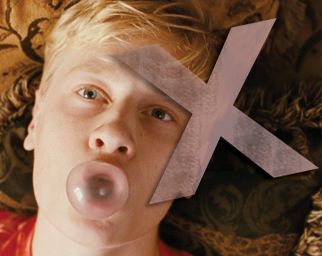Awards, Recent Miscellania
 Sunday, January 11, 2015 at 10:35AM
Sunday, January 11, 2015 at 10:35AM It's Golden Globes Night. Until then let's try in vain to catch up a little.
Oscar Nomination Morning (this Thursday) has some news. For the first time they'll be announcing ALL CATEGORIES at that early morning ceremony we so love. Not just the headliners which is all they used to do followed by the press release list of all nominees. The Film Experience heartily approves!
Palm Springs International Film Festival wraps up tomorrow but the jury prizes are in and four of this season's Oscar submissions won something: Russia's Leviathan won the FIPRESCI for Best Film and Georgia's Corn Island took an award called "Bridging the Borders". Both are still in the running to become America's Next Top Foreign Language Film. The acting prizes went to films that have already been cut from Oscar's Foreign Film Party. Mommy's Anne Dorval took Best Actress and Winter Sleep's Haluk Bilginer won Best Actor. You can see the rest of the prizes here. Audience Awards have yet to be announced.
 That bitch to the right does NOT like Glenn Close's hairstyle. Do you?
That bitch to the right does NOT like Glenn Close's hairstyle. Do you?
Makeup And Hair Stylists Guild will hold their awards ceremony on Valentine's Day on the Paramount lot where Rick Baker, of werewolf fame, and Kathryn Blondell (of Leo DiCaprio and Goldie & Kate hairstyling fame) will receieve lifetime achievement awards. They have 5 categories for film as well as 14 other categories which cover tv, commercials, and live theater. Thus they're far more generous than the Academy's corresponding branch which already eliminated several of their nominees. Curiously their website does not contain the nominees just into about attending their awards show (unless I'm just missing it) but you can see a complete list at Deadline. Guardians of the Galaxy and Into the Woods led their nominations with 3 each including a prize specifically for the Witch which I'm sure will delight many of you given what you've been saying in the comments. The most curious category in terms of a collection of nominees is surely Best Contemporary Hairstyling. They went with: Birdman, Guardians of the Galaxy, Interstellar , St. Vincent, and Winter's Tale. Super strange, right? I'd only heard people mocking Winter's Tale... even for the hair! I can't excuse the lack of Tilda's vampire dreadlocks, or Lucy's dye jobs, but I guess there aren't a lot of contemporary films with noticeable hair work this year?
The Casting Guild used to hold the annual Artios Awards in November and their eligibility period was not based on the calendar year. They've shifted it now -- presumably to be more in line with everyone else -- so their eligibility period is fairly long this year which resulted in a curious mix of last year's beloved movies and this year's contenders so you have categories where, say, 12 Years a Slave is going up against Selma (Feature Film Big Budget Drama) and Short Term 12 is going up again Boyhood (Feature Film Low Budget Drama). You can see a complete list at their website. My happiest takeaway from this list is that Short Term 12 was remembered (its casting was effortful and brilliant, if you think about it) and that Pride was honored in the oddly and very broadly titled Feature Film Studio or Independent Comedy category. Pride will be competing with Big Eyes, Chef, The Grand Budapest Hotel, St. Vincent and Top Five. Chef seems like a really weird choice since there was a whole lot of Jon Favreau calling up all his celebrity friends to do him a favor.
 Mommy won several prizes from Vancouver critics. But Anne Dorval lost Best Actress!Critics Prizes continue in cities all over the place. We decided we just couldn't cover it all so made firm decisions about how we'd proceed next year -- if you missed that post it's basically that we'll only be covering groups formed before 2000 since there's been an absolute explosion ever since with multiple rounds of press releases -- some groups have as few as 8 people so they might all be friends in someone's basement, who knows! But since we don't cover them all we'll be just linking up to their awards at other places (though not their nominations) and pointing out areas where they went out on a true limb if there are any. Recent groups that have announced include Iowa which went with all the usual suspects but for Reese for Best Actress, Vancouver which went for all the usual suspects but for Tilda Swinton for Best Actress for Only Lovers Left Alive and The Overnighters for Documentary (they also have Canadian film awards so it's worth looking at and they were fans of Mommy & Tu dors Nicole) , Oklahoma went with the usual suspects but for Edward Norton in Birdman the world's Official Runner Up for supporting (bad timing for his Oscar dreams I suppose), and they have a fun prize called "not so obviously worst movie" which went to Monuments Men and a prize I don't agree with called "Guilty Pleasure" which went to Edge of Tomorrow but honestly there's nothing to feel guilty about when a movie is really good, which that one is, and you like watching it). Finally, though I probably missed some cities, Georgia went with the usual suspects but for Tilda Swinton in Snowpiercer and the getting less and less unusual Jake Gyllenhaal in Nightcrawler. They also have a breakthrough award which went to David Oyelowo which is an interesting choice but he's been working too long for me to view him thusly. Still, I get the impulse. He had a big year and he's lesser known.
Mommy won several prizes from Vancouver critics. But Anne Dorval lost Best Actress!Critics Prizes continue in cities all over the place. We decided we just couldn't cover it all so made firm decisions about how we'd proceed next year -- if you missed that post it's basically that we'll only be covering groups formed before 2000 since there's been an absolute explosion ever since with multiple rounds of press releases -- some groups have as few as 8 people so they might all be friends in someone's basement, who knows! But since we don't cover them all we'll be just linking up to their awards at other places (though not their nominations) and pointing out areas where they went out on a true limb if there are any. Recent groups that have announced include Iowa which went with all the usual suspects but for Reese for Best Actress, Vancouver which went for all the usual suspects but for Tilda Swinton for Best Actress for Only Lovers Left Alive and The Overnighters for Documentary (they also have Canadian film awards so it's worth looking at and they were fans of Mommy & Tu dors Nicole) , Oklahoma went with the usual suspects but for Edward Norton in Birdman the world's Official Runner Up for supporting (bad timing for his Oscar dreams I suppose), and they have a fun prize called "not so obviously worst movie" which went to Monuments Men and a prize I don't agree with called "Guilty Pleasure" which went to Edge of Tomorrow but honestly there's nothing to feel guilty about when a movie is really good, which that one is, and you like watching it). Finally, though I probably missed some cities, Georgia went with the usual suspects but for Tilda Swinton in Snowpiercer and the getting less and less unusual Jake Gyllenhaal in Nightcrawler. They also have a breakthrough award which went to David Oyelowo which is an interesting choice but he's been working too long for me to view him thusly. Still, I get the impulse. He had a big year and he's lesser known.
How prepared are you for the Globes tonight? Make sure to listen to our predictions today if you haven't yet!









